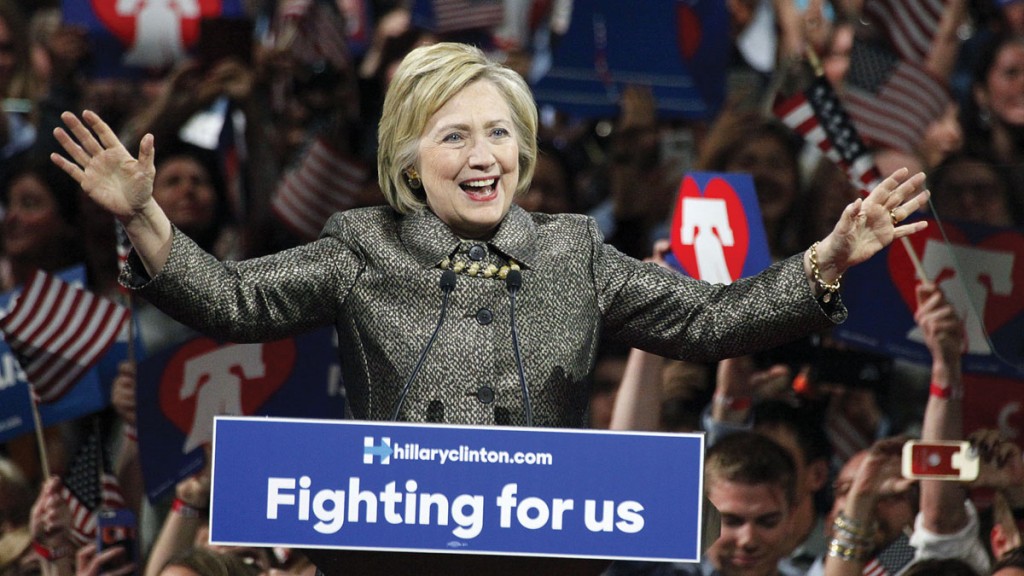
With Donald Trump and Hillary Clinton virtually certain to be the two candidates in the American presidential election in November, talk is turning to what their presidencies might mean for equities. But investors should ignore all the analyses. Everyone presumes that whoever wins will have “a significant and immediate effect on both the economy and the markets”, says Barry Ritholtz on BloombergView.com. In fact, “markets and the economy determine which candidate does well, and not the reverse”.
Consider the evidence. You might expect a candidate from the traditionally pro-market Republican party to be better news for stocks than a typically more protectionist and anti-business Democrat. But studies suggest the latter is much better for stocks.
According to Bespoke Investment Group, the Dow Jones index gained an average of 83% under Democratic presidents, compared to 45% under Republicans, between 1901 and 2014. Sam Stovall of S&P Capital IQ looked at the S&P 500 between 1945 and 2015. He found that the average annual gain under a Democrat was 9.7%; under a Republican one, it was 6.7%.
Gerald Ford, a Republican, topped the table. Under him the S&P gained an average of 18.6% a year. Democrat Bill Clinton came second with a meanyearly gain of 12.6%. Stocks only fell during two administrations: those of George W Bush and Richard Nixon.
Take a closer look and it’s clear that Ritholtz is right. Presidents have little control over the various factors affecting the broader economic backdrop, which is key to their performance. Ford’s time in office coincided neatly with the global recovery from the oil crisis of the early 1970s.
Clinton presided over investors’ growing exuberance over the internet; the bubble had not lost much air when he left office. The dotcom collapse and the credit crunch hit George W Bush’s tenure, while the Great Depression hurt Herbert Hoover in the 1930s.
Presidents’ policies are often watered down in Congress in any case. So while a president and his administration can help provide a tailwind to a bigger trend – as Ronald Reagan’s tax cuts fuelled the recovery from the 1970s inflation spike – they are unlikely to drive one.
The broader point here is that ascribing stocks’ performance to a particular person is a classic investors’ error: seeing patterns where none exist. Correlation is not causation, and stocks go up most of the time anyway. So tune out all the breathless talk about what Trump or Clinton could mean for this sector or that index. The market doesn’t care who’s in the White House.